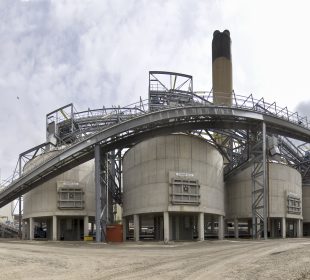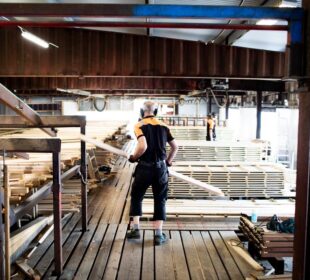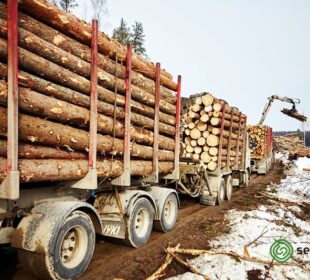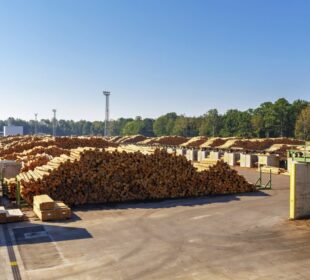FedEx, the largest express transportation company in the world, plans to produce millions of gallons of biofuel produced from waste wood biomass. The global logistics giant has signed a supply deal with US-based Red Rock LLC, which is currently building a biorefinery to manufacture this product from woody biomass.
Red Rock will provide FedEx with three million gallons of low-carbon jet fuel per year starting 2017 until 2024. FedEx now operates a fleet of 600 aircrafts and has pledged to use 30% of its jet fuel from alternative sources by 2030.
Red Rock’s first refinery, funded in part by a $70 million Title III DPA grant from the U.S. Departments of Agriculture, Energy and Navy, has started operations last fall in Lakeview, Oregon and will convert approximately 140,000 dry tons of woody biomass into 15 million gallons per year of renewable jet, diesel and naphtha fuels.
Red Rock Biofuels LLC will refine waste biomass residues into high value, lower carbon renewable jet, diesel and naphtha fuels.
FedEx chief executive Frederick Smith said: “As a heavy user of fossil fuels, we know how important it is to reduce our consumption and make trade-related energy more sustainable. Respect for our environment makes this an imperative. And reducing reliance on oil lessens the market volatility that slows growth.
“We’re proud to work with this innovative company [Red Rock Biofuels], which converts scrap and forest waste to make fuel. The process contributes to smart forest management practices that reduce the intensity of forest fires,” Mr. Smith added.
The pioneering collaboration will see Red Rock’s low-carbon biofuel power planes based at the FedEx Express Oakland hub, with the wood waste supplied by a sawmill company in Oregon that sustainably manages a 100,000-acre forest.
Red Rock chief executive Terry Kulesa was pleasantly surprised by the extent to which a ‘receptive’ FedEx bought into his company’s vision of biofuel as the future of aviation. He said: “I’m amazed at their foresight. FedEx is saying to airlines and the financial sector that this is the future of aviation fuel. We hope to build about 10 more plants in the next few years.”
FedEx’s commitment to jet biofuel is a welcome response to concerning evidence that aviation carbon emissions are in danger of growing dramatically over the coming decades, without tangible targets from governments to reduce carbon rates.
In September 2015, a New Climate Economy report revealed that, while the world’s aviation and maritime sectors are currently responsible for around 5% of global emissions, that figure is growing rapidly and total emissions between the two sectors could rise by as much as 250% by 2050. Crucially, both the shipping and aviation industries were notable exclusions in the final draft of the Paris climate agreement.

















